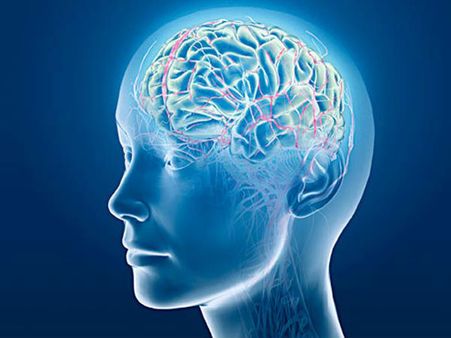Just In
- 3 hrs ago

- 6 hrs ago

- 7 hrs ago

- 9 hrs ago

Don't Miss
- Automobiles
 Ola Electric Hits New Milestone – 500th Service Centre Opened In Kochi
Ola Electric Hits New Milestone – 500th Service Centre Opened In Kochi - Sports
 KKR vs RCB IPL 2024 Playing 11: Kolkata Knight Riders vs Royal Challengers Bengaluru Team News, Predicted Lineup
KKR vs RCB IPL 2024 Playing 11: Kolkata Knight Riders vs Royal Challengers Bengaluru Team News, Predicted Lineup - Education
 Railway RPF Recruitment 2024; Apply Online for 4660 Post Vacancies @rpf.indianrailways.gov.in
Railway RPF Recruitment 2024; Apply Online for 4660 Post Vacancies @rpf.indianrailways.gov.in - News
 Who Was Max Azzarello, The US 'Conspiracy Theorist' Who Set Himself On Fire Outside Donald Trump's Trial?
Who Was Max Azzarello, The US 'Conspiracy Theorist' Who Set Himself On Fire Outside Donald Trump's Trial? - Movies
 Do Aur Do Pyaar Box Office Collection Day 2 Prediction: Vidya-Pratik's Rom-Com To Cross 1 Cr On Saturday
Do Aur Do Pyaar Box Office Collection Day 2 Prediction: Vidya-Pratik's Rom-Com To Cross 1 Cr On Saturday - Finance
 Elon Musk Postpones India Trip, Tesla's Indian Market Entry Delayed
Elon Musk Postpones India Trip, Tesla's Indian Market Entry Delayed - Technology
 Best Noise-Cancelling Earbuds Under Rs 5,000: CMF Buds Pro, Redmi Buds 5, Realme Buds Air 5, and More
Best Noise-Cancelling Earbuds Under Rs 5,000: CMF Buds Pro, Redmi Buds 5, Realme Buds Air 5, and More - Travel
 Journey From Delhi To Ooty: Top Transport Options And Attractions
Journey From Delhi To Ooty: Top Transport Options And Attractions
Aphasia: Types, Causes, Symptoms, Diagnosis And Treatment
Bruce Willis, a 67-year-old actor most remembered for his role as John McClane in the Die Hard movies, has decided to retire from acting, following a diagnosis of aphasia, a condition that impairs a person's ability to talk and write.
On Wednesday, the actor's family, including his wife Emma Heming-Willis and ex-wife Demi Moore, posted an update on his health status on Instagram.
"Bruce has been experiencing some health issues and has recently been diagnosed with aphasia, which is impacting his cognitive abilities. As a result of this and with much consideration Bruce is stepping away from the career that has meant so much to him."
What Is Aphasia?
Aphasia is a language disorder, which affects a person's ability to communicate through speaking, writing and understanding language, both verbal and written [1]. According to the National Aphasia Association, aphasia is one of the most common disabilities caused by a stroke, which causes injury to the brain, particularly in older adults.
According to the National Institute on Deafness and Other Communication Disorders (NIDCD), aphasia usually occurs suddenly after a stroke or head injury, but it may also develop gradually due to a brain tumour or a progressive neurological disease.

Causes Of Aphasia
Aphasia is caused due to the damage to one or more language areas of the brain often caused by a stroke. Stroke occurs when there is a blockage or rupture of a blood vessel, resulting in the reduction of blood supply to the part of your brain and prevents the brain tissues from receiving oxygen and nutrients. This eventually leads to the death of brain cells due to inadequate oxygen and nutrients. About 21 to 38 per cent of people who survive a stroke get aphasia [2].


Types Of Aphasia
According to theNational Aphasia Association, these are the types of aphasia [3].
• Global aphasia - This is the most severe form of aphasia caused by injuries to many language processing areas of the brain. These brain areas help in understanding spoken language, accessing vocabulary and using words and sentences. Patients with global aphasia produce few recognisable words and understand little or no spoken language. They also can neither read nor write.
• Mixed transcortical aphasia - Also known as isolation aphasia is a rare speech problem which is characterised by limited spontaneous speech and reduced comprehension with intact repetition. The number of words spoken in a sentence that can be repeated is often decreased to three or four. Writing, naming words, comprehension reading or reading out loud is disturbed [4].
• Broca's aphasia - It is also known as non-fluent or expressive aphasia which occurs as a result of damage to the left frontal area (speech and language areas) of your brain. People with Broca's aphasia find difficulty in speaking fluently. They speak in short, incomplete sentences and find difficulty to find the right words to speak. They may also understand what others are speaking and may be able to read but can't write.
• Transcortical motor aphasia - Another rare non-fluent speech disorder that occurs in less than 10 per cent of stroke patients. It is characterised by normal repetition and comprehension with reduced slow spontaneous speech [5].
• Wernicke's aphasia - It is also known as fluent or receptive aphasia. In Wernicke's aphasia, the damage is caused to the middle left side of the brain, an area that is responsible for processing the meaning of words and spoken language. People with this type of aphasia can't grasp the meaning of spoken words and sentences and they can't read or write. They also tend to speak long, complex sentences that have no meaning and include incorrect words.
• Transcortical sensory aphasia - It is an uncommon type of aphasia that is characterised by impaired comprehension but preserved repetition. Patients with this type of aphasia can repeat long and complex sentences that they can't understand.
• Anomic aphasia - It is a mild form of aphasia. The person often speaks fluently and produces grammatically correct sentences but it includes vague words. They can understand what others are speaking and can read well.
• Primary progressive aphasia (PPA)- This type of aphasia is caused by neurodegenerative diseases, such as Alzheimer's disease or frontotemporal lobar degeneration. A person with this type of aphasia has speech and language problems.
• Conduction aphasia - The patient with this type of aphasia may have trouble in repetition of words or sentences with intact comprehension and relatively fluent spontaneous speech [6].


Symptoms Of Aphasia
•
Having
difficulty
in
speaking
•
Speaking
short,
incomplete
sentences
•
Speaking
sentences
that
don't
make
sense.
•
Speaking
incorrect
words.
•
Struggling
to
find
the
appropriate
word.
•
Unable
to
understand
other
people's
conversation.

Complications Of Aphasia
Aphasia can deteriorate the quality of your life and can cause problems where communication is required, affecting work and relationships. And this can cause emotional distress, depression and social isolation due to improper language function [7].
When To See A Doctor
Seek medical care immediately if you suddenly have difficulty in speaking or recalling words, trouble in understanding speech and inability to read or write.


Diagnosis Of Aphasia
Speech pathologists can help diagnose aphasia resulting from stroke. They perform a complete examination of the person's communication skills, which includes speaking, expressing ideas, understanding language, reading and writing. This helps in identifying the strengths and weakness of communication.

Treatment Of Aphasia
Depending on the types of aphasia, the treatment is performed. However, speech and language therapy is effective in treating patients with aphasia. A study showed that 33 hospitalised patients with subacute stroke who had 16 sessions of speech and language therapy for 30 -60 minutes a day, twice a week for eight weeks continuously showed an improvement in reading and listening comprehension, oral motor evaluation, automatic speech and repetition and naming words and also there was fluency in speech [8].
Common FAQs
Q. Can aphasia come on suddenly?
A. Aphasia often occurs suddenly after a stroke or a head injury, but it can also occur slowly from a brain tumour or a progressive neurological disease.
Q. What happens to people with aphasia?
A. A person with aphasia can have trouble in speaking, reading, writing and understanding language.
Q. Who is at risk for aphasia?
A. While aphasia is most common in older adults, however, it can occur in people of all ages, races and gender.
Q. Does aphasia affect a person's intelligence?
A. No, a person with aphasia will have difficulty in communicating, but intelligence won't get affected.
Q. Can a person recover from aphasia?
A. Yes, you can completely recover after stroke, but if the symptoms of aphasia last longer than two to three months after a stroke, there are decreased chances of recovery.

Prevention Of Aphasia
Although aphasia can't be prevented, you could lower the risk of stroke by maintaining a healthy lifestyle. These include the following:
•
Eating
nutritious
foods.
•
Maintaining
a
healthy
weight.
•
Exercising
everyday.
•
Keeping
blood
pressure,
diabetes
and
cholesterol
levels
under
control.
•
Getting
good
sleep.
•
Limiting
the
intake
of
alcohol
and
smoking.

-
 disorders cureWhat Is Anomic Aphasia, A Speech Problem Causing Trouble In Naming Objects? Causes, Symptoms And Treatments
disorders cureWhat Is Anomic Aphasia, A Speech Problem Causing Trouble In Naming Objects? Causes, Symptoms And Treatments -
 insyncChildren's Day 2022 : Speech Ideas For Teachers & Students On Children's Day
insyncChildren's Day 2022 : Speech Ideas For Teachers & Students On Children's Day -
 disorders cureStuttering: Types, Symptoms, Causes, Diagnosis And Treatment
disorders cureStuttering: Types, Symptoms, Causes, Diagnosis And Treatment -
 women10 Best Hard-Hitting Quotes Of Sushma Swaraj
women10 Best Hard-Hitting Quotes Of Sushma Swaraj -
 disorders cureVeteran Actor Arun Bali Passes Away At 79: What Is Myasthenia Gravis: Symptoms, Causes And Complications
disorders cureVeteran Actor Arun Bali Passes Away At 79: What Is Myasthenia Gravis: Symptoms, Causes And Complications -
 pulseWATCH: Speech Of Muslim Teacher On Why She Wears Hijab Is Trending
pulseWATCH: Speech Of Muslim Teacher On Why She Wears Hijab Is Trending -
 kidsReasons For Speech Delay In Kids
kidsReasons For Speech Delay In Kids -
 basicsMother's Anti-Depressant Use Linked To Baby's Speech Disorder
basicsMother's Anti-Depressant Use Linked To Baby's Speech Disorder -
 insyncRobert Pattinson To Appear On The View
insyncRobert Pattinson To Appear On The View -
 pregnancy parentingWhite Lung Syndrome: What Are The Symptoms Of The Disease Rampant In China? How Does It Spread?
pregnancy parentingWhite Lung Syndrome: What Are The Symptoms Of The Disease Rampant In China? How Does It Spread? -
 healthWorld HIV/AIDS Day: What Is The Difference Between HIV and AIDS?
healthWorld HIV/AIDS Day: What Is The Difference Between HIV and AIDS? -
 healthDengue 101: Causes, Symptoms, Risks, Complications, Treatment, Prevention, Diet And More
healthDengue 101: Causes, Symptoms, Risks, Complications, Treatment, Prevention, Diet And More


 Click it and Unblock the Notifications
Click it and Unblock the Notifications



